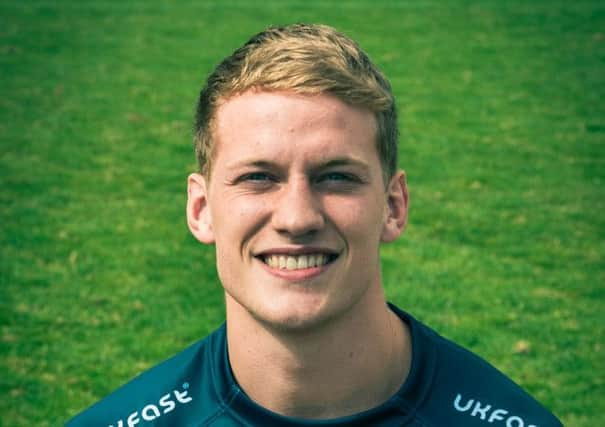Former Preston Grasshoppers director of rugby Gareth Dyer's weekly column


First and foremost, it is excellent news to see local boy and former Hopper Mike Haley selected for the England squad. The Haley family are a true Hoppers family, with father and son both having played for the club and the family business continuing to be a prominent sponsor of the Lightfoot Green club.
It is selections such as Mike’s that a whole club can take pride in. If he can now force his way into a match day squad, then I am sure the Hoppers clubhouse will be packed to watch one of their own take his place for his country.
Advertisement
Hide AdAdvertisement
Hide AdIn a pretty lean time for Northern club rugby, the selection of this home grown star can inspire the next generation and show aspiring players that they do not have to move south to get international recognition.
But whilst Haley’s selection showcases how the development structure in rugby union should be working towards providing countries with home grown talent, too many are placing their emphasis on recruiting players rather than developing their own.
In fact, in some respects it has now gone beyond the ridiculous.
The latest selection from the “you couldn’t make it up” file comes from Australia and their selection of Fijian born rugby league convert Marika Koroibete.
Advertisement
Hide AdAdvertisement
Hide AdThe former NRL player has been selected to tour despite having not played a single minute of rugby union for any Australian team at any level. In fact, his only union experience dates back to his time playing as a child in his native Fiji.
On this basis, Koroibete clearly has no affiliation to the Wallabies. Yes, he has lived in Australia for four years and hence he meets their minimum qualifying period for residency, but come on.
He has been there to play another sport and did not start the residency process with the clear ambition that he wanted to play rugby union for Australia.
To me, this selection is as distasteful as the “Project Player” principle employed by some unions in recent years.
Advertisement
Hide AdAdvertisement
Hide AdShort of selection options in certain positions? Then trawl the world for possible options and then get them over to your country to serve a three-year residency qualification. Problem solved!
This week, recently retired Ireland international Luke Fitzgerald was refreshingly candid on the situation. “I want to see Irish guys in there. It’s like the Barbarians versus Barbarians” said Fitzgerald who having been forced to end his career through injury will now rue even more those missed caps he lost to overseas imports.
It perhaps wouldn’t be so bad if those players who take up this flag of convenience option actually had some intention of retaining their residency after they have finished playing, so as to put something back into the game in that country.
But the majority quickly return to their real homes as soon as they are no longer being selected at international level.
Advertisement
Hide AdAdvertisement
Hide AdPeople may ask what’s the problem. After all, the world is a transient place and people will travel to find a suitable home for their skills and talents.
That’s fair enough, but in rugby terms to allow this to go unchecked would ultimately see the game contract to the rich and powerful few rather than continue to grow as a global game.
Last weekend, a startling fact emerged that there are currently over 350 South Africans playing professional rugby in Europe.
In the pursuit of financial gains South Africans are being lured to Europe with many being signed on the basis that they have not tied themselves to playing for the Boks.
Advertisement
Hide AdAdvertisement
Hide AdTo have at least one South African in your squad appears to be the bare minimum for many international teams these days.
And it is this movement of players that is threatening the competitiveness of the international game – which lest we forget is the jewel in the union crown.
Yes, there are other issues at play in South Africa but given their distinctly average performances in the recent rugby championship it is clear that the player drain is already having a serious impact on the playing strength of the once mighty Springboks.
Of course this player drain is nothing new to the Pacific Islands teams who continue to be treated as second class citizens in the International game.
Advertisement
Hide AdAdvertisement
Hide AdNew World Rugby Deputy Chairman Augustin Pichot is clearly determined to tighten up the regulations on players moving international allegiance and that cannot happen soon enough.
Increasing residency qualifying periods to a minimum five years sounds good in theory but could this lead to the unpalatable – and already evident – practice of rich European clubs trawling the world for teenage talent so that it can be schooled, developed and nationalised well before they move into the senior ranks.
It is to this end that the idea of clubs creating their own schools should be met with some scepticism.
There are other areas also need to be looked at – such as the second generation rule - if we want to get back to an international game that is truly representative of the countries involved.
If we don’t, then future opportunities for clubs like Hoppers to celebrate their next Mike Haley might just disappear altogether.